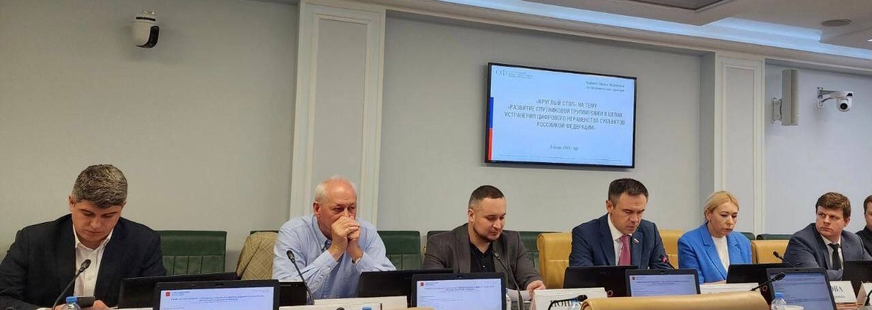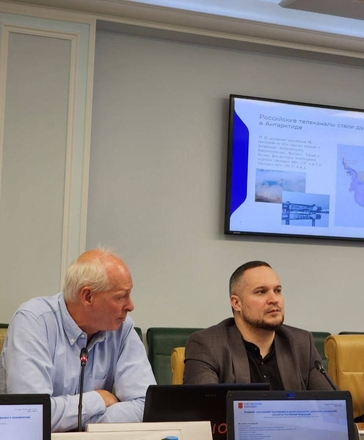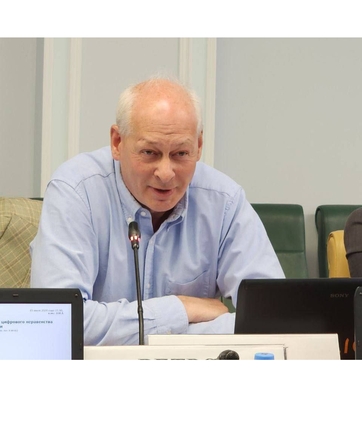Digital equality and satellite brotherhood: RSCC Director General Alexey Volin speaks at the Federation Council about bridging the digital divide in Russia
In spite of the surging development of terrestrial communication networks, the demand for satellite services is no way declining. This was the opinion shared by Alexey Volin, Director General of Russian Satellite Communications Company, on 5 June at the 'Bridging the Digital Divide in Russia' roundtable meeting that was held in the Federation Council's Committee for Economic Policy. "Over 10 years, the internet traffic has increased 10-fold, with the annual growth in the internet consumption being 25%. Therefore, although fibre optics have been steadily expanding their coverage, the satellite traffic has not been declining because people who remain out of reach of the fibre optics have been radically augmenting the World Wide Web usage", added Volin.
Russian Satellite Communications Company is in close touch with the Ministry of Digital Development in part of the connectivity of small communities. "There are 13.8 thousand townships in Russia right now with 50 to 100 inhabitants, plus 20 thousand villages with population of 11 to 25 people. These are territories where fibre optics will never come to. We have estimated that it would take 50 years to bring communications and internet through the cable to all those places, and the price of connection per subscriber would be about 600 thousand rubles", said Alexey Volin. And although the satellite offers reduced bandwidth, the time and cost of consumer connection will be considerably lower in this case.
The RSCC Director General also added that the enterprise is working on minimizing the digital divide between users on land and at sea, too.
"RSCC is the leader in maritime connectivity market in Russia. The number of ships using satellite links by RSCC grew up by 20% over 2023. This is a very important figure, as the ability to contact your loved ones is one of the priorities for specialists when applying for a job at sea," summarized Alexey Volin.


